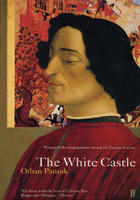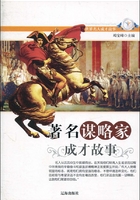"HE SANG BOLEROS? Then he's got to be the guy I told you about," Mono said again.
"He is. We checked; he's the same guy. Palomino Molero, from Castilla. But that doesn't tell us who killed him."
They were near the stadium in La Chunga's little bar. There must have been a prizefight in progress because they could hear the shouts of the fans. Lituma had come to Piura on his day off; a truck driver from the I.P.C. brought him that morning and was going back to Talara at midnight. Whenever he came to Piura, Lituma went on the town with his cousins, José and Mono León, and with Josefino, a friend from the Gallinacera neighborhood. Lituma and the León brothers were from La Mangachería, but the long-standing rivalry between the two neighborhoods meant nothing to the four friends. They were so close they'd written their own theme song and called themselves the Unstoppables.
"Figure this one out and they'll make you a general, Lituma," wisecracked Mono.
"It's going to be tough. Nobody knows anything, nobody saw anything, and the worst part is that the authorities won't lift a finger to help."
"Wait a minute, aren't you the authorities over in Talara?" asked Josefino, genuinely surprised.
"Lieutenant Silva and I are the police authority. The authority I'm talking about is the Air Force. That skinny kid was in the Air Force, so if they don't help us, who the fuck will?"
Lituma blew the foam off his beer and took a swallow, opening his mouth like a crocodile. "Motherfuckers. If you guys had seen what they did to the kid, you wouldn't be grinning your way down to the whorehouse like this. You'd understand why I can't think about anything else."
"We do understand," said Josefino. "But talking about a corpse all the time is boring. Why don't you forget about the guy, Lituma? He's dead."
"That's what you get for becoming a cop," said José. "Work is a disease. Besides, you're no good at that stuff. A cop should have a heart made of stone, because he has to be a motherfucker sometimes. And you're so damn sentimental."
"It's true, I am. I just can't stop thinking about that skinny kid. I have nightmares, I think someone's pulling off my balls the way they did to him. His balls were hanging down to his knees, smashed as flat as a pair of fried eggs."
"Did you touch them?" Mono asked, laughing.
"Talk about eggs and balls, did Lieutenant Silva screw that fat woman yet?" José asked.
"We've been on pins and needles ever since you told us about it," added Josefino. "Did he screw her or not?"
"At the rate he's going, he'll never screw her."
José got up from the table. "Okay, let's go to the movies. Before midnight the whorehouse is like a funeral parlor. They're showing a cowboy film at the Variety with Rosita Quintana. The cop's treating, of course."
"Me? I don't even have the dough for this beer. You'll let me pay later, won't you, Chunguita?"
"Maybe your mama will let you pay later," answered La Chunga, looking bored.
"I figured you'd say something like that. I just wanted to screw around."
"Go screw around with your mama."
"Two points for La Chunga; zero for Lituma," Mono announced. "La Chunga wins."
"Don't get steamed, Chunguita. Here's what I owe you. And lay off my mom: she's dead and buried over in Simbilá."
La Chunga, a tall, sour woman of uncertain age, snatched up the money, counted it, and gave back the change as the Unstoppables were leaving.
"One question, Chunguita. Didn't anyone ever crack a bottle over your head for being such a wise guy?"
"Since when have you been so curious," she replied, not deigning to look at him.
"Someday someone's going to give you a lesson in good manners."
"I'll bet it won't be you," said La Chunga, yawning.
The four Unstoppables walked along the sandy path that led to the main road, passed the Piura blueblood club, and headed toward Grau's monument. It was a warm night, quiet and starry. The mixed smells of carob trees, goats, birdshit, and deep frying filled the air. Lituma, unable to erase from his mind the picture of the impaled and bloody Palomino Molero, wondered if he'd be sorry he'd become a cop instead of living the free and easy life of the Unstoppables. No, he wouldn't be sorry. Even though work was a bitch, he ate every day, and his life was free of uncertainties. José, Mono, and Josefino were whistling a waltz in counterpoint, and Lituma was trying to imagine the lulling tones and the "captivating melodies" of the kid's boleros. At the entrance to the Variety, he said goodbye to his cousins and Josefino. He lied to them, saying the truck driver from the International was going back to Talara earlier than usual and that he didn't want to miss his ride. They tried to shake him down for some cash, but he didn't give them a cent.
He headed for the Plaza de Armas. On the way he spotted the poet Joaquín Ramos on the corner, wearing a monocle and pulling along the goat he called his gazelle. The plaza was crowded, as if people were there for some church function. Lituma paid no attention to them and, making as if he were going to meet a woman, crossed the Old Bridge over to Castilla. The idea had taken shape while he was drinking his beer in La Chunga's. Suppose she wasn't there? What if she'd moved to some other city to put her grief behind her?
But there she was, sitting on a bench in the doorway of her house, enjoying the cool of the evening as she shucked some corn. Through the open door of the adobe hut, Lituma could see the woman's few pieces of furniture: cane chairs (some without seats), a table, some clay pitchers, a box she used as a dresser, and a tinted photograph. "The kid," he thought.
"Evening." He stood in front of the woman. She was barefoot, wearing the same black dress she had on that morning in the Talara Police Station.
"Evening," she murmured, looking at him without recognizing him. Some squalid dogs sniffed at him and growled. In the distance, someone strummed a guitar.
"May I talk with you for a minute, Do?a Asunta? About your son Palomino."
In the half light, Lituma could just make out her furrowed, wrinkled face, her tiny eyes covered by puffy lids scrutinizing him uneasily. Were her eyes always like that, or were they swollen from crying?
"Don't you recognize me? I'm Officer Lituma, from Talara. I was there when Lieutenant Silva took your statement."
She crossed herself, muttered something incomprehensible, and Lituma watched her laboriously stand up. She went into the house, carrying her corn and her bench. He followed her and took off his cap as soon as he was inside. He was moved by the fact that this had been Palomino Molero's house. He was not following orders but his own initiative; he hoped it wouldn't mean trouble.
"Did you find it?" she mumbled in the same tremulous voice she used in Talara to make her declaration. She sagged into a chair, and since Lituma stared at her questioningly, she raised her voice. "My son's guitar. Did you find it?"
"Not yet." He remembered Do?a Asunta sobbing as she answered Lieutenant Suva's questions, and constantly asking about getting back Palomino's guitar. But after she'd gone, neither he nor the lieutenant remembered. "Don't worry. Sooner or later it'll turn up, and I'll bring it to you myself."
She crossed herself again, and it seemed to Lituma she was exorcising him. "I bring it all back to her."
"He wanted to leave it here, but I told him, Bring it with you, bring it with you. No, Ma, at the base I won't have any time to play. Besides, I might not even have a locker to store it in. Let it stay here. I'll play when I come to Piura. No, Palomino, take it with you so you can pass the time better, so you can accompany yourself when you sing. Don't give up your guitar when you love it so much. Oh, God … my poor child."
She started to cry, and Lituma was sorry he'd stirred up the old woman's memories. He muttered some broken consolations as he scratched his neck. He sat down, just to do something. Yes, the photograph was of Palomino making his First Communion. For a long time, Lituma stared at the long, angular little face of the dark-skinned boy with his hair slicked down, dressed all in white, with a candle in his right hand, a missal in his left, and a scapulary around his neck. The photographer had reddened his cheeks and lips. A scrawny kid, in a rapture, as if he were contemplating the infant Jesus.
"Already he sang beautifully," whimpered Do?a Asunta, pointing to the photo. "Father García had him sing by himself, and everybody clapped, right during Mass."
"Everybody said he had a terrific voice. He might have become an artist, like the ones that sing on the radio and make tours. Everybody says so. Artists shouldn't get drafted. They should be exempt."
"Palomino didn't get drafted. He was exempt."
Lituma looked her in the eye. The old lady crossed herself and started to cry again. As he listened to her crying, Lituma stared at the insects swarming around the lamp. There were dozens, buzzing and crashing again and again into the glass shade, trying to reach the flame. They wanted to kill themselves, the idiots.
"The fortune-teller said that when the guitar is found the murderers will be found, too. Whoever's got his guitar killed him. Murderers! Murderers!"
Lituma nodded in agreement. He was dying for a smoke, but to light up a cigarette in the presence of this grieving lady seemed sacrilegious to him.
"Your son was exempt from military service?"
"The only son of a widow," recited Do?a Asunta. "Palomino was the last; the other two died. That's the law."
"It's true, so many unfair things happen." Lituma scratched his neck once again, certain she was going to start crying again. "I mean, they had no right to call him up, right? You call that justice? If he hadn't been drafted, he'd be alive. For sure."
Do?a Asunta shook her head as she dried her eyes on the hem of her dress. In the distance they could still hear the guitars, and Lituma suddenly fantasized that the guy playing out there in the darkness, maybe on the riverbank watching the moon, was Palomino.
"They didn't draft him; he enlisted." Do?a Asunta was still weeping. "Nobody made him go. He went into the Air Force because he wanted to. He brought on his own tragedy."
Lituma stood there, silently watching the seated woman, who was so short her bare feet scarcely reached the floor.
"He took the bus to Talara, went into the base, and said he wanted to join up. Poor baby! He was going to his death. He did it himself. My poor Palomino!"
"Why didn't you tell this to Lieutenant Silva when you were in Talara?"
"He never asked. I answered every question he asked me."
That was true. Did Palomino have any enemies? Did anyone ever threaten him? Had she ever heard of his arguing or fighting with someone? Did anyone have any reason to harm him? Had he told her he was thinking of deserting? Asunta meekly answered every question: no, nobody, never. But the truth was that the lieutenant had never thought of asking if the kid had been drafted or if he enlisted.
"You mean he liked being in the service?" Lituma was shocked: the impression he had of the bolero singer was completely false.
"That's the part I don't understand," she wailed. "Why did you do it, Palomino? You, in the Air Force? You? You? In Talara? Planes crash; do you want to scare me to death? How could you do it without talking to me first? Because if I did, you'd have said no, Mama. But why, Palomino? Because I have to go to Talara. Because it's a matter of of life and death, Mama."
"And why was it a life-and-death matter for your son to go to Talara?"
"I never found out." She crossed herself for the fourth or fifth time. "He wouldn't tell me and he's taken his secret to the grave. Oh! Why did you do this to me, Palomino?"
A brown goat with white spots poked its head into the room and stared at the woman with its big, pitying eyes. A shadow pulled it away.
"He must have been sorry as soon as he joined. When he discovered that military life is not fun, games, and girls but a lot of drill, spit, and polish. That's probably why he deserted. That much I can understand. What I don't get is why they killed him. And in such a cruel way."
He'd been thinking out loud, but Do?a Asunta didn't seem to notice. So he enlisted to get out of Piura, because it was a matter of life and death. Someone must have threatened him here in town and he thought he'd be safe in Talara, on the Air Force base. But he couldn't take military life, so he deserted. The person or persons he ran away from found him and killed him. But why like that? You've got to be crazy to torture someone who's still just a kid. Lots of guys join up because their love life has fallen apart. Maybe he was turned down. Maybe he was in love and the girl gave him a hard time, or cheated on him. He got bitter and decided to get away. Where? Talara. How? By enlisting. It seemed believable and unbelievable all at the same time. He nervously scratched his neck again.
"Why have you come to my house?" Do?a Asunta suddenly turned toward him.
He felt he'd been caught in a lie. Why had he come? No good reason, unhealthy curiosity.
"To find out if you could give me any clues," he stuttered.
Do?a Asunta's disgust showed in her eyes, and Lituma thought she knew he was lying.
"You had me over there for three hours telling you all I know," she whispered, grieving. "What more do you want? What more? Do you think I know who killed my son?"
"Don't get mad. I don't want to upset you, so I'll be on my way. Thanks for talking to me. We'll get in touch with you if we find out anything."
He got up, said good night, and went out without shaking hands with her, afraid she wouldn't take his hand. Outside, he stuck his cap on his head and calmed down after walking a few steps down the dirt road, under the glittering stars. The distant guitar had fallen silent. All he could hear were the shrill voices of children fighting or playing, the chatter of the adults in front of their houses, and some dogs barking. What's wrong with you? he thought. What's gotten into you? The poor kid. He couldn't be the easygoing guy from La Mangachería again until he understood how there could be people in the world that evil. Especially because everybody was saying that Palomino wouldn't hurt a fly.
Lituma reached the Old Bridge, but instead of crossing over to the city, he went into the Río Bar, which was built on the ancient bridge over the Piura River. His throat felt like sandpaper. The Río Bar was empty. No sooner did he sit down than the owner, Moisés, came over. His ears were so huge everyone called him Dumbo.
"Just can't get used to seeing you in uniform, Lituma," he mocked, handing him a glass of lúcuma juice. You look like you're in disguise. Where are the Unstoppables?"
"They went to a cowboy movie," said Lituma, gulping down his drink. "I've got to get back to Talara right away."
"What a fucking mess that Palomino Molero business is. Did they really cut his balls off?"
"They didn't cut them off, they pulled them off." Lituma was disgusted: that was the first thing everyone wanted to know. Now Moisés would start making jokes about the kid.
"It's all the same." Dumbo moved his enormous ears as if they were the wings of some huge insect. His nose and chin also stuck way out. A total freak.
"Did you know him?"
"Yeah, and so did you, 'I'm sure of it. Don't you remember him? The rich boys would hire him for serenades. They had him sing at parties, at any special event, even at the Grau Club. He sang like Leo Marini, I swear. You must have met him, Lituma."
"That's what everybody says. José, Mono, and Josefino say we were all together one night when he sang at La Chunga's place. But I just can't remember it."
He closed his eyes and conjured up a series of identical nights, sitting around a small wooden table bristling with beer bottles, the cigarette smoke burning his eyes, the stink of booze, drunken voices, blurred silhouettes, and guitars playing waltzes and tonderos. Could he find, in that chaos, the young, crooning, caressing voice that made you want to dance, hold a woman, and whisper sweet nothings in her ear? No, he couldn't turn up a thing. His cousins and Josefino were wrong. He just drew a blank: Lituma had never heard Palomino Molero sing in his life.
"Did you find out who killed him?"
"Not yet. Were you a friend of his?"
"He'd come by now and then to have a drink. We weren't buddies, but we'd chat once in a while."
"Was he lively, a talker? Or was he serious and cold?"
"Quiet and shy. Romantic, kind of a poet. Too bad they drafted him. He must have suffered with all that military discipline."
"He wasn't drafted; he was exempt. He enlisted. His mother can't figure it out, and neither can I."
"That's what happens when you get a broken heart." Dumbo wagged his ears.
"That's what I think, but that doesn't tell me who killed him or why."
Some men came into the Río Bar, and Moisés went to take their order. It was time to find the truck driver, but Lituma felt himself going slack. He didn't move. He saw the slim boy tuning his guitar; he saw him in the half light of the streets where Piura's purebreds lived, beneath the wrought-iron bars on the balconies belonging to girls he could never love, captivating them with his pretty voice. He saw him pocketing the tips the rich boys would give him for serenading their girls. Did he buy his guitar with those tips saved up over the course of months? Why was it a matter of "life and death" for him to leave Piura?
"Now I remember," said Moisés, flapping his ears furiously.
"What do you remember?"
"That he was crazy in love. He told me something. An impossible love. That's what he said."
"A married woman?"
"How would I know, Lituma? There's lots of impossible loves. You can fall in love with a nun, for instance. But I remember hearing him say that. 'So what are you so down in the mouth about, kid?' 'Because I'm in love, Moisés, and it's an impossible love.' That's why he joined the Air Force."
"Didn't he tell you why it was an impossible love? Or who she was?"
Moisés wagged his head and his ears.
"That's all he said. That he had to see her in secret. He serenaded her, but not under her window. From afar."
"I get it." He imagined the kid running away from Piura because of a jealous husband who'd threatened to kill him. "If we knew who the woman was, why it was an impossible love, we'd have something to go on." Maybe that's why he'd been tortured: the rage of a jealous husband.
"If it's any help to you, I can tell you that the woman he loved lived near the air base."
"Near the base?"
"One night we were talking here, Palomino Molero sitting right where you are. He heard that a friend of mine was going to Chiclayo and asked him for a ride to the air base. 'What are you going to do out there at this time of night?' 'I'm going to serenade my girlfriend, Moisés.' So she must have lived there."
"But no one lives there. It's all sand and carob trees, Moisés."
"Think about it a little, Lituma," Dumbo said, ears wagging. "Get to work on it."
"Could be." Lituma scratched his neck. "All the Air Force people and their families live right near there."















